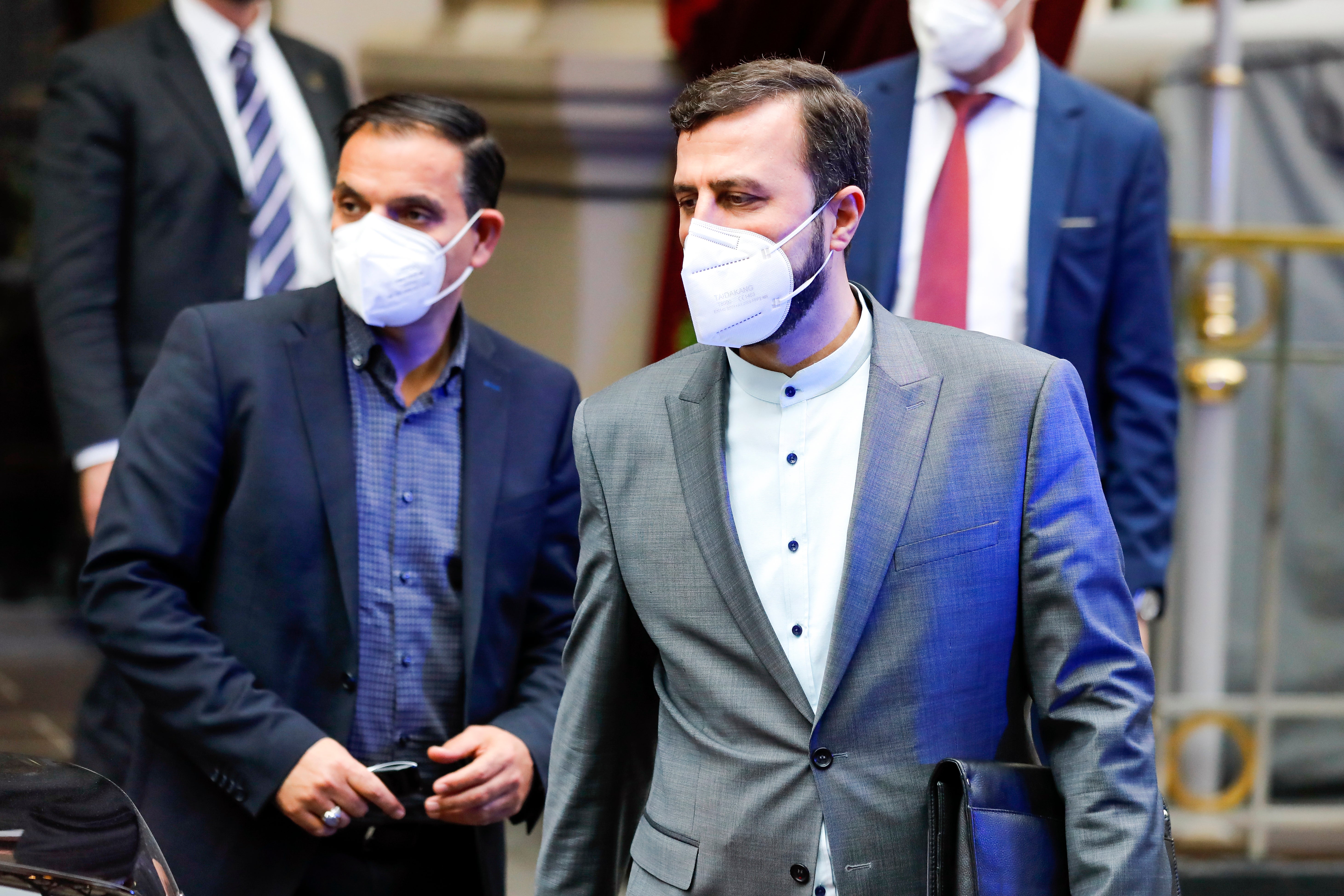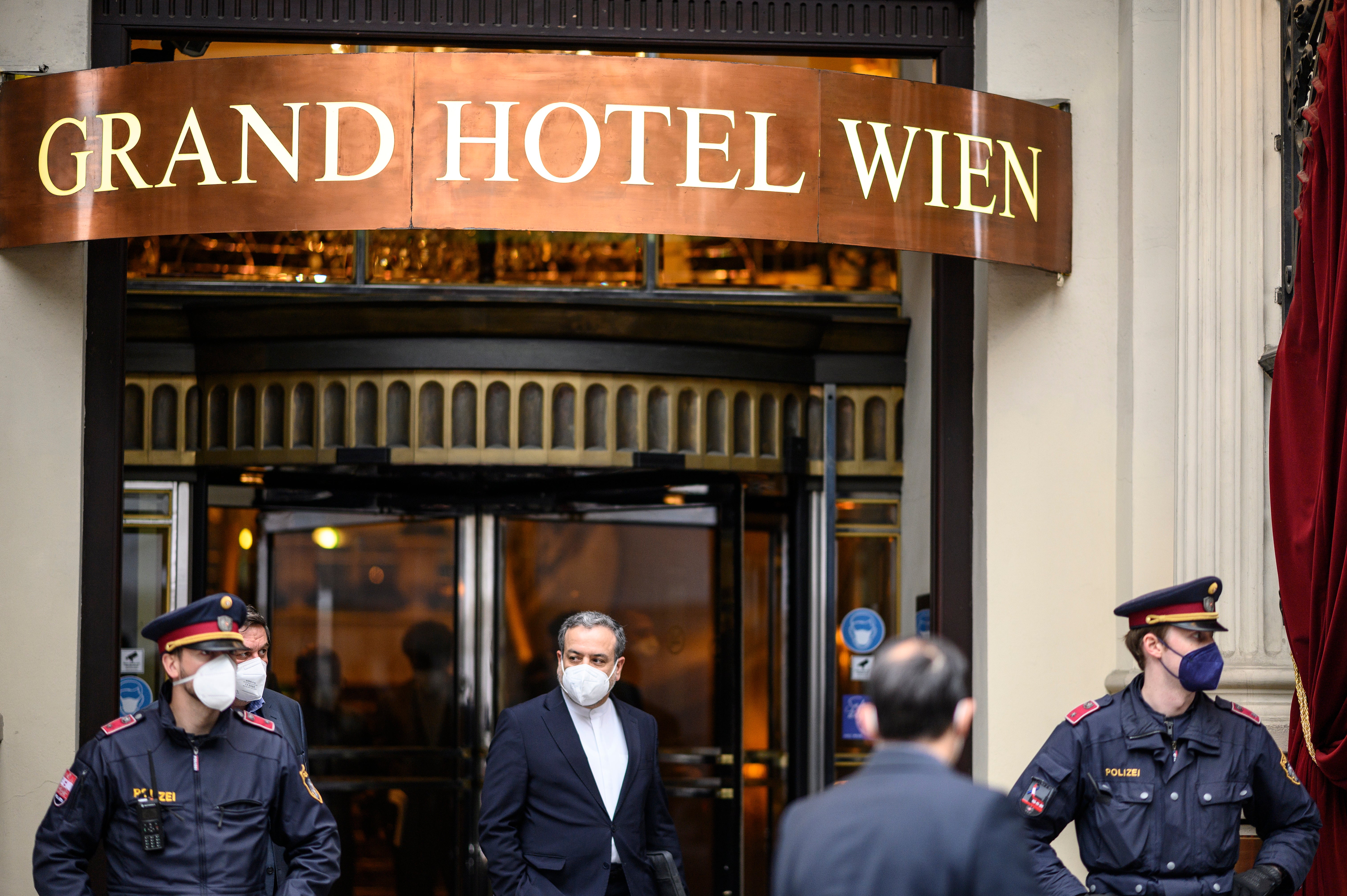Iran taken to task for unexplained uranium traces at undeclared facilities
As much as half of Iran’s enrichment capacity wiped out in suspected Israeli attack

A controversy over traces of radioactive material found at several Iranian sites has prompted Iran to reduce its compliance with nuclear inspectors and may colour the tone in ongoing Vienna talks to resurrect a critical arms-control agreement.
A report this week by the International Atomic Energy Agency (IAEA) takes Iran to task for failing to adequately explain traces of uranium discovered by inspectors at sites that were not among those declared by Iran as nuclear sites.
"After many months, Iran has not provided the necessary explanation for the presence of the nuclear material particles at any of the three locations where the Agency has conducted complementary accesses,” IAEA chief Rafael Grossi said in a report.
In response, Iran has decided to reduce the ability of the IAEA to conduct snap inspections at certain facilities, though it will continue to allow cameras at the sites and grant access to the footage should a deal be struck to revive the Joint Comprehensive Plan of Action (JCPOA), the nuclear deal.
Another report released by the IAEA this week revealed that Iran was operating 20 cascades of centrifuges at its enrichment facility in Natanz, down from up to 37 it was operating before a suspected Israeli attack struck the facility in April.
But Iran has installed more advanced and efficient centrifuges to replace the older and slower centrifuges destroyed in the April blast, meaning it could be producing as much if not more fissile material. Iran’s continued operation of advanced centrifuges is one of the contentious issues at talks to revive the JCPOA.
Iran’s stockpile of enriched uranium has reached 3,241kg, nearly 12 times the limit set in the JCPOA, according to the quarterly report.
The developments come as a fifth and, some have said, a potentially final round of negotiations between Iran and world powers continue.
The nuclear deal, forged by Iran, the United States, United Kingdom, France, Germany, Russia and China, became imperiled after Washington pulled out of it in 2018 and imposed waves of sanctions on Iran in an attempt to draw Tehran back to the negotiating table.
Iranian officials have not directly addressed the alleged discovery of uranium traces and state media described any alleged Iranian violations as related to Iran’s response to the US torpedoing of the JCPOA.
The traces were discovered during inspections carried out at two sites in August and September of 2020. International officials familiar with the findings say they were discovered at sites believed to have been dormant for two decades and may be wholly unrelated to the recent cycle of US sanctions and breaches of JCPOA limits by Iran.
The US has been pressing the IAEA and other world powers to draw attention to the uranium traces but France, Germany and the UK have balked, worried that any pressure could complicate negotiations over a return to the JCPOA.

Despite the disagreements over the uranium traces, Iran has struck an upbeat tone about the ongoing talks as well as continuing cooperation between Tehran and international inspectors. As a signatory to the international Non-Proliferation Treaty, Iran promises to pursue nuclear research transparently and not to pursue weapons. It has agreed to additional intrusive inspections as part of the JCPOA.
“Iran has been making maximum efforts to cooperate with the agency in a substantive manner, providing explanations and essential answers,” Ali Akbar Salehi, head of Iran’s Atomic Energy Organisation, was quoted as saying in a letter to the IAEA.
“We welcome the agency's readiness to engage actively and intensely with Iran to resolve several safeguard issues without delay and we strongly expect that this mutual cooperation will soon yield practical results in this regard.”
Join our commenting forum
Join thought-provoking conversations, follow other Independent readers and see their replies
Comments
Bookmark popover
Removed from bookmarks